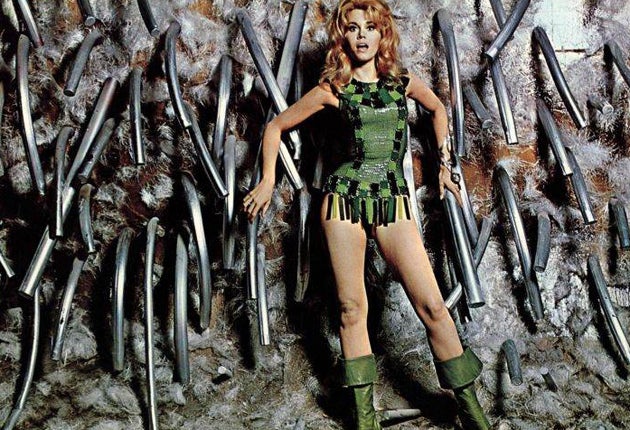Dino De Laurentiis, the prolific Hollywood impresario who was behind more than 500 movies and left an indelible footprint on the way the industry makes and markets major films, has died. He was 91.
In a career which spanned half a century, the Oscar-winning producer became known as a tireless deal-maker who was never afraid to bet big on an extravagant idea that had captured his imagination.
Early hits ranged from Italian titles La Strada and Nights of Cabiria, which both won Academy Awards, to Barbarella, War and Peace, and the Al Pacino hit Serpico. The modern era brought success with the Conan the Barbarian films, and the Silence of the Lambs sequels Hannibal, Red Dragon, and Hannibal Rising.
Yet De Laurentiis was equally famed for his flops, which were typically underwritten with cash from outside investors. Dune, which burned $40m in 1984, was his; so was the infamous 1976 remake of King Kong, and 1977's Orca.
He suffered a catastrophic near-bankruptcy in 1988, at the age of 70, yet bounced back with a sense of ambition which will see him remembered as a survivor in the great tradition of outsized Hollywood producers. He later tasted success with Breakdown, U-571, and the three final Hannibal Lecter titles.
"My grandfather was a true inspiration, he was my biggest champion in life and a constant source for wisdom and advice," said his grand-daughter Giada De Laurentiis, a television chef.
Born in Torre Annunziata, on the Bay of Naples, De Laurentiis was tiny (five foot four) but had a personality which drew comparisons to Napoleon. His second wife Martha described him as "a little lion." He started working life selling pasta, but after serving in the Italian army during the Second World War re-invented himself as a producer, and almost immediately hit commercial gold with the 1949 classic Riso Amaro (Bitter Rice).
In collaboration with Sophia Loren's husband Carlo Ponti, De Laurentiis swiftly became a leading figure in the Italian "new wave" of the 1950s, when the country's cinema enjoyed a boom.
In the late 1950s, De Laurentiis developed the "international co-production", in which Hollywood studios would film overseas, where backstage labour was cheap. Anthony Quinn came to Rome for La Strada, followed by Kirk Douglas (Ulysses) and Audrey Hepburn and Henry Fonda (War and Peace).
He built a massive film studio near Rome. But it soon hit financial difficulties when the Italian government tightened subsidy regulations. Eventually, the business failed, ending his relationship with Ponti and persuading him to emigrate to Hollywood in the early 1970s.
There he churned-out endless hits, including such cult classics as Michael Winner's Death Wish, Sydney Pollack's Three Days of the Condor, Flash Gordon, and John Wayne's final western, The Shootist. In the 1980s, he helped kick-start the career of both David Lynch, with Blue Velvet, and Arnold Schwarzenegger, in the Conan films. He was also one of the first producers to notice the potential of Stephen King novels. An accomplished wheeler-dealer, he would open and close production firms regularly, and often sold rights to old projects to scrape together finance for new ones. "My philosophy is very simple," he once declared. "To feel young, you must work as long as you can."
The producer's big hits
Barbarella (1968) Sci-fi flop that has since gained a cult following.
Serpico (1973) Al Pacino stars as a New York cop with Sidney Lumet directing.
Death Wish (1974) Thriller that made director Michael Winner.
Flash Gordon (1980) Features Brian Blessed's famous line "Gordon's alive!"
Subscribe to Independent Premium to bookmark this article
Want to bookmark your favourite articles and stories to read or reference later? Start your Independent Premium subscription today.


Join our commenting forum
Join thought-provoking conversations, follow other Independent readers and see their replies